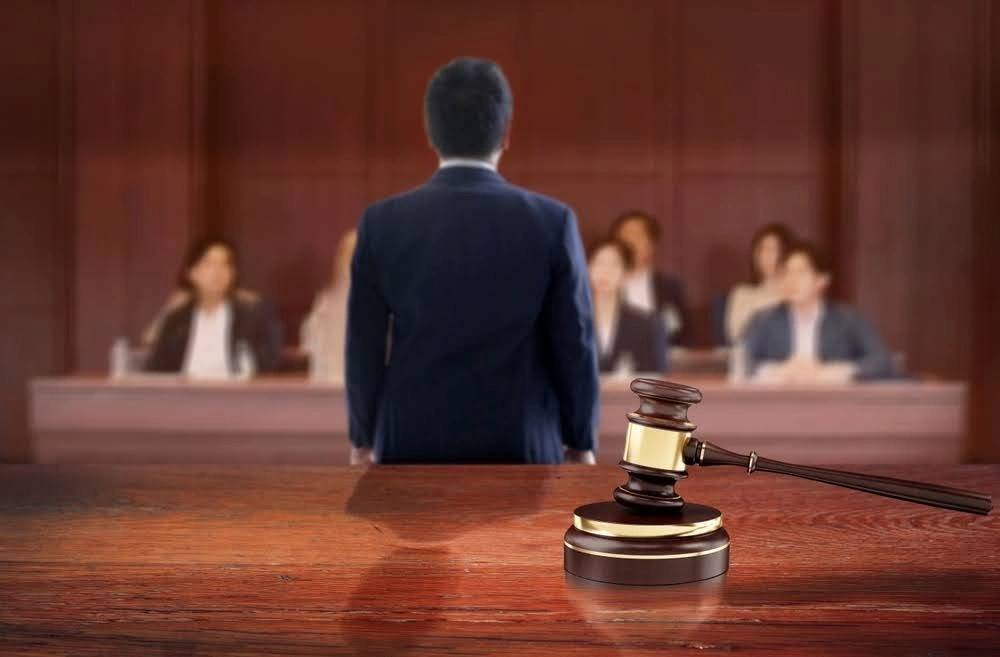What is a Business Valuation Expert?

Image Source: Corporate Finance Institute
“Valuation is as much art as it is science.” — Warren Buffett, Chairman and CEO of Berkshire Hathaway, renowned investor
A business valuation expert helps determine the or company economic value of a business[1]. These professionals give an unbiased, independent review of a business’s worth. They look at financial performance, assets, and market conditions in detail [2]. They build a complete picture of the business at both macro and micro levels to understand why value changes [1].
These experts play vital roles in assessing company value. They look at capital structure, future earnings potential, and asset market value. They also provide objective analysis of management [1]. They review financial statements, assets both tangible and intangible, liabilities, and overall financial health. Market conditions, industry trends, and competitive landscapes shape their analysis [3].
Qualified business valuation experts typically hold credentials from respected organizations. The most important designations include:
- Accredited in Business Valuation (ABV) – granted by the American Institute of Certified Public Accountants (AICPA)
- Certified Business Appraiser (CBA) – from the Institute of Business Appraisers (IBA)
- Accredited Senior Appraiser (ASA) – through the American Society of Appraisers
- Certified Valuation Analyst (CVA) – from the National Association of Certified Valuators and Analysts [4][5]
Unaccredited appraisers might be qualified, but certified professionals must follow strict ethical codes that require independence and objectivity [4]. This sets them apart from attorneys, accountants, or business brokers who promote their clients’ interests rather than staying impartial.
These experts use different methods including income-based, market-based, and asset-based approaches based on each business and industry [3]. They analyze historical and future financial statements, market trends, economic conditions, and other key factors. This leads to well-documented conclusions about business value [1].
Companies just need business valuation professionals in many situations. These include financial reporting, tax reporting, mergers and acquisitions, business planning, litigation, divorce proceedings, partnership disputes, bankruptcy, and estate planning [1][1]. They often testify as expert witnesses in court cases about disputed business values, and their testimony must hold up under tough questioning [5].
Fair value reporting and International Financial Reporting Standards are gaining worldwide acceptance. This creates more opportunities for qualified business valuation specialists [1]. Their expert knowledge helps make crucial business decisions in companies of all sizes and types.
Why Do These Skills Matter in Litigation and Valuation?
Image Source: Litili Group
A business valuation expert’s specialized skills become especially important in litigation and valuation contexts because they directly affect legal outcomes and financial decisions. Legal business valuations need more than technical expertise – they demand a clear grasp of legal contexts, professional standards, and persuasive communication [5]. These professionals must handle procedural and strategic nuances of expert testimony while working effectively under judicial scrutiny.
Business valuation expertise plays a vital role in different legal proceedings, including divorce cases, minority shareholder suits, partnership disputes, business acquisitions, economic damage claims, and fraud investigations [6]. Each scenario centers around one consistent question – determining the accurate value of a business or ownership interest according to appropriate standards and methodologies.
Valuation processes extend throughout the case timeline and shape discovery, settlement discussions, trial strategy, testimony, and cross-examination [7]. Courts depend on valuation reports to assess fair market value of business shares, potential future earnings for asset division, and business assets’ effect on settlements [8]. Business assets may face unfair distribution or devaluation during legal proceedings without proper valuation expertise.
Case outcomes heavily depend on the business valuation expert’s credibility. Knowing how to create evidence-based valuations using objective data becomes critical at trial, where every data point faces intense scrutiny [7]. Value adjustments might become necessary and potentially damage a case due to inconsistencies, discrepancies, or insufficient support.
Valuation practitioners need a solid understanding of court rules, procedures, and techniques, among other governing professional standards like the and Statement on Standards for Forensic Services AICPA’s Statement on Standards for Valuation Services[9]. These experts maintain independence, integrity, objectivity, and professional skepticism throughout their engagement.
Technical analysis alone isn’t enough – business valuation experts need exceptional communication skills. Complex information must remain understandable to judges and juries [10]. Strong oral and written communication helps these professionals present large amounts of data clearly and persuasively in court settings.
A thorough understanding of business financials, industry-specific factors, and valuation methodologies helps business valuation experts establish the foundation for fair settlements, accurate damage calculations, and informed judicial decisions that protect valuable business interests [11].
8 Critical Skills Every Business Valuation Expert Must Have
Business valuation experts need a detailed skill set to figure out accurate business values in different situations. These professionals blend technical expertise with specialized knowledge to provide reliable valuation services.
1. Deep understanding of valuation methodologies
Experts need to become skilled at multiple valuation approaches to determine business worth accurately. They typically use three main methods:
- Income approach: Converting predicted benefits to value through discounted cash flow or capitalization methods
- Market approach: Comparing the subject to businesses like it that have been sold
- : Determining value based on the assets net of liabilities Asset-based approach[12]
Professional judgment matters more than prescribed formulas when selecting the right methods. Experts must weigh factors like standard of value, purpose of valuation, and business type [12].
2. Strong financial statement analysis skills
Experts must get into and adjust financial statements when needed to show true business performance. They normalize earnings, remove one-time expenses, fix related-party transactions, and account for non-operating assets [13]. Their forensic-level review of financial statements ensures reliable and credible data for valuations [13].
3. Experience with forensic accounting techniques
Forensic accounting skills boost valuation accuracy through investigative techniques that find hidden assets, verify data accuracy, and spot fraud [14]. These professionals analyze source documents, reconstruct cash flows, and use digital forensics. They look at financial information skeptically to ensure valuations don’t rely on manipulated data [15].
4. Knowing how to communicate complex findings clearly
Clear communication ranks among the most valuable skills for valuation experts, especially when dealing with litigation. Experts translate complex financial concepts into understandable information for judges, juries, and non-financial stakeholders [16]. Visual storytelling through dashboards and simple graphics helps show financial effects better than complex spreadsheets [16].
5. Familiarity with legal standards and evidentiary rules
Experts must understand legal procedures and evidence requirements. The Daubert standard proves important here. It looks at how valid methods are based on testing, peer review, error rates, standards maintenance, and acceptance in the relevant scientific community [2].
6. Credentialing such as CPA and ABV certification
The Accredited in Business Valuation (ABV) credential from the American Institute of Certified Public Accountants builds instant credibility with employers, clients, and courts [17]. CPAs who want ABV certification must complete at least 1,500 hours of valuation work within five years before applying [17].
7. Experience serving as an expert witness
Experts with courtroom experience know how to develop valuations that hold up under cross-examination. They document each investigation step, prepare for challenges from opposing experts, and stay credible throughout legal proceedings [15].
8. Proficiency in economic damage calculations
Experts show they know how to measure financial effects through economic damage calculations. Get into their background with defamation cases, business interruption analyzes, personal injury claims, and wrongful termination assessments [18].
How to Evaluate a Certified Business Valuation Expert
Choosing the right business valuation expert needs a careful look at their qualifications and skills. A proper review will help you work with someone who can provide solid valuations that hold up under scrutiny.
Check for CPA and ABV credentials
The best business valuation experts have certifications like CPA (Certified Public Accountant) along with ABV (Accredited in Business Valuation). Getting an ABV credential takes , 150 hours of business valuation experience, and tough testing 75 hours of education[19]. Courts and opposing counsel immediately recognize these credentials.
Review litigation and expert witness experience
Look at the expert’s track record of court testimony. A seasoned valuation witness knows how to build and defend opinions during cross-examination [20]. Their curriculum vitae should show previous case involvement, especially in cases like yours.
Ask for sample reports or redacted case summaries
Sample valuation reports help you see their depth, clarity, and analytical strength. A complete report includes detailed analysis of both hard financial data and judgment-based valuation factors [21]. Quality work shows full documentation of assumptions, methods, and conclusions.
Assess communication and courtroom readiness
Clear communication makes testimony work. Experts need to explain complex financial ideas in ways judges and juries understand [20]. Look at what they’ve published and where they’ve spoken to gage their communication skills.
Knowledge of industry-specific valuation factors
Industry expertise leads to more accurate valuations because it brings understanding of sector risks, growth patterns, and value drivers [22]. Without this specialized knowledge, key factors affecting value could be missed.
Ethical integrity and professional independence
Valuation experts must stay objective and independent from everyone involved [23]. Check if they follow professional standards like USPAP or the AICPA’s Statement on Standards for Valuation Services, which set ethical rules for valuation work [5].
Where These Skills Make the Biggest Impact
“The market values businesses not for what they are, but for what they might become.” — Warren Buffett, Chairman and CEO of Berkshire Hathaway, renowned investor
Business valuators play a crucial role when money is on the line and accurate financial assessments can make or break outcomes. These professionals use their expertise to solve complex financial disputes in many different situations.
Divorce and family law cases
During divorces, business valuators help figure out if business interests belong to one spouse or both. Their work shapes how assets get split up and affects alimony payments. These experts must sort out business ownership, put dollar values on assets, and look at hard-to-measure factors like a company’s reputation and professional goodwill.
Shareholder and partnership disputes
Valuators help solve ownership conflicts by providing unbiased financial analysis. Their work makes fact-finding more effective and increases the chances of settling out of court. They often testify about a business’s worth, damages to the bottom line, whether compensation is fair, and what discounts apply when owners lack control or can’t easily sell their stake.
Business acquisitions and sales
When companies merge or get bought out, valuators make sure the price is right by taking a hard look at what companies are worth. This helps prevent fights over price changes, working capital goals, or future payment terms that could kill deals.
Economic damages and lost profits claims
Experts review the financial hit from lost profits, broken contracts, and business disruptions. They project future income, look at changing costs, and work out what future cash flows are worth today to figure out damages.
Fraud investigations and forensic audits
Forensic accountants dig up hidden assets, check if numbers add up, and spot fraud that changes a company’s value. Companies each year to internal theft and cooking the books, which affects their value by a lot lose approximately 5% of revenues[6].
Key Takeaways
Master these essential skills to excel as a business valuation expert and deliver defensible valuations that withstand legal scrutiny.
- Master three core valuation approaches: income, market, and asset-based methodologies to determine accurate business worth across different scenarios and industries.
- Develop forensic accounting expertise: Use investigative techniques to uncover hidden assets, detect fraud, and ensure financial data integrity for reliable valuations.
- Build strong courtroom communication skills: Translate complex financial concepts into clear, understandable testimony that resonates with judges and juries.
- Obtain professional credentials like CPA and ABV: These certifications establish instant credibility and demonstrate adherence to rigorous professional standards.
- Gain litigation experience as an expert witness: Courtroom exposure teaches you to develop opinions that withstand cross-examination and maintain credibility under pressure.
Business valuation experts with these skills make the biggest impact in high-stakes scenarios including divorce proceedings, shareholder disputes, M&A transactions, economic damage claims, and fraud investigations. The combination of technical expertise, professional credentials, and communication abilities enables these professionals to provide objective, defensible valuations that directly influence legal outcomes and major financial decisions.
FAQs
Q1. What qualifications are necessary to become a business valuation expert? To become a business valuation expert, you typically need a combination of education, experience, and professional certifications. This includes a degree in finance or accounting, several years of experience in valuation work, and credentials such as the Accredited in Business Valuation (ABV) or Certified Valuation Analyst (CVA). Continuous learning and staying updated with industry trends are also crucial.
Q2. What are the main valuation methods used by business valuation experts? Business valuation experts primarily use three approaches: the income approach (such as discounted cash flow), the market approach (comparing to similar businesses), and the asset-based approach. The choice of method depends on the specific business, industry, and purpose of the valuation.
Q3. How important is courtroom experience for a business valuation expert? Courtroom experience is highly valuable for business valuation experts, especially those involved in litigation. It helps them understand how to present complex financial information clearly, withstand cross-examination, and maintain credibility. Experts with courtroom experience are often better prepared to develop and defend their opinions effectively.
Q4. Can someone become an Accredited in Business Valuation (ABV) without being a CPA? Typically, the ABV credential is designed for CPAs. However, some organizations offer similar credentials for non-CPAs. It’s important to check with the specific accrediting body for their exact requirements. The ABV credential, in particular, is generally reserved for those who already hold a CPA license.
Q5. How do business valuation experts handle potential conflicts of interest? Business valuation experts must maintain strict ethical standards and independence. They should disclose any potential conflicts of interest upfront and recuse themselves if necessary. Adhering to professional standards and codes of ethics, such as those set by the AICPA, is crucial for maintaining objectivity and credibility in their work.




